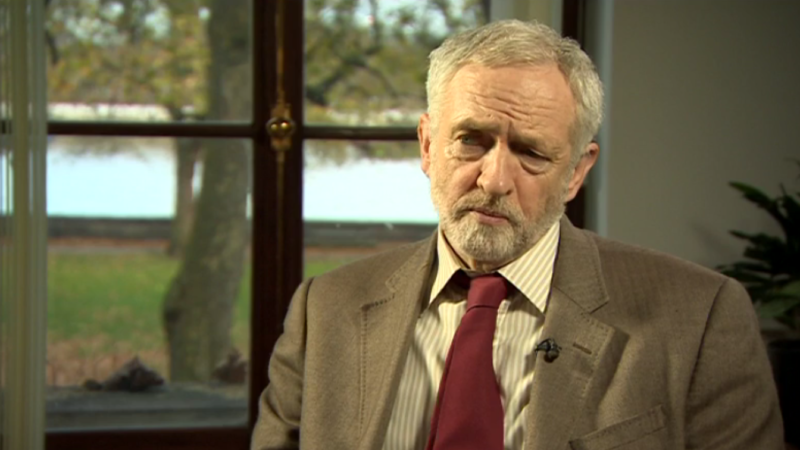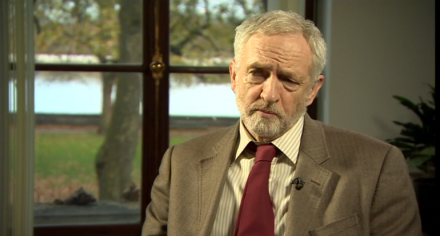

In a series of interviews today, Jeremy Corbyn has indicated that Labour MPs will be whipped to oppose military action in Syria, cast doubt over the legality of the strike against Mohammed Emwazi, and said he does not favour a policy of shoot to kill against terrorists in the UK.
Corbyn was again setting out his opposition to military involvement in the Syrian conflict, saying he wanted countries to work towards a “political settlement”. When asked on Sky News whether he would allow Labour MPs a free vote if the issue of intervention came to Parliament, he replied: “I don’t think a free vote is something we are offering.” He also reiterated the stance on ITV.
The Labour leader said that he did not believe that France’s bombing of the Syrian city of Raqqa over the weekend would help the situation. “I don’t think that that bombing is necessarily going to bring about the solution that they believe it might,” he said.
On Friday, Corbyn said that it would have been better if Mohammed Emwazi, also known as ‘Jihadi John’, had been brought before a court, rather than killed in a targeted drone strike. Asked on ITV News whether he would have authorised the strike, he said that he would “only authorise actions which are legal and within the terms of international law”.
Questioned on whether he believed the Emwazi strike was legal, he replied: “I’m awaiting an explanation of where the legal basis was for that incident.”
On the BBC, Corbyn said he would be unlikely to sanction police or security services to shoot to kill in the event of a terrorist attack in the UK similar to the one that occurred in Paris, saying he felt it would be “counterproductive”. He said:
“I’m not happy with a shoot to kill policy in general, I think that’s quite dangerous and I think often can be counterproductive.”




More from LabourList
‘The High Court judgment brings more uncertainty for the trans community’
‘There are good and bad businesses. Labour needs to be able to explain the difference’
‘This ruling should now remove any remaining barrier to approval of EHRC code’